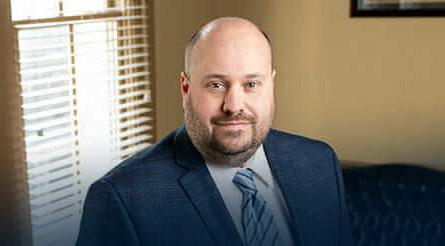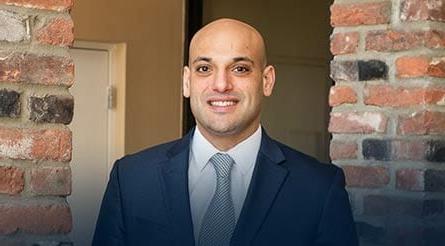Ask A Lawyer
The law is complicated. While there are generalities that hold true from day to day (e.g., stealing is illegal, marriage can be dissolved by divorce), the specifics are constantly evolving (e.g., the value of the property stolen, which determines the recommended sentence; a state’s residency requirements for filing for divorce). That’s why talking with an attorney is crucial and can make all the difference in the success of your case. At Church, Langdon, Lopp, Banet Law, we get a lot of questions. While the answers vary based on personal circumstances, here are a few of the questions we’ve gotten recently:
FAMILY LAW-RELATED
Q: I got a raise. Will that reduce the child support I receive?
A: Maybe. The courts do not want to spend time and resources making a lot of minor changes to child support orders. There are thresholds in place for determining whether a change is warranted. In Indiana, the relevant statute provides for modification of child support only if circumstances have changed so substantially as to make the current child support order unreasonable, or if the change would make more than a 20% difference in the child support payment and it has been at least 12 months since the order was issued. In Kentucky, a 15% difference is enough after 12 months, but a 25% difference is required in the first year. If the person who is paying child support files a Petition to Modify Child Support, he or she will have to show that the applicable criteria have been met.
Q: Is there an advantage (or a disadvantage) to being the one who files for divorce?
A: No. The person who files for divorce is referred to as the Petitioner and the other spouse is referred to as the Respondent. The Petitioner pays the filing fees. Other than those distinctions, there is no difference between the Petitioner and the Respondent as far as rights and strategies. It does not matter who files. In the end, you’ll both be equally divorced.
CHILD CUSTODY RELATED
Q: Is it true that Kentucky passed a new law making 50/50 custody automatic?
A: Sort of. Kentucky recently passed House Bill 492, which creates a rebuttable presumption that joint custody and equal parenting time is appropriate. A rebuttable presumption means that you can argue to the court that 50/50 is not appropriate. However, unless and until you can show that, a court in Kentucky will automatically order joint custody and equal (50/50) parenting time. Many states, including Indiana, have been moving toward a presumption that equal parenting time is best, but haven’t enacted laws making that presumption automatic. In most states, both parents still have an opportunity to show why equal parenting time should or shouldn’t happen from the very beginning of a case. And in many cases, one parent can effectively withhold that equal parenting time until a court orders otherwise. That can no longer happen in Kentucky.
CRIMINAL LAW-RELATED
Q: Does a police officer have a right to search my vehicle during a traffic stop?
A: In short, NO. An officer, in Kentucky or Indiana, does not have a right to search your vehicle during a traffic stop without reasonable suspicion that another crime is ongoing. The Supreme Court has stated that an officer may only detain a person for the reasonable amount of time required to complete a traffic stop and cannot detain someone any longer than that without reasonable suspicion. So, an officer may stop you only for as long as it takes to complete a routine traffic stop and no longer. Police officers cannot simply go on “fishing expeditions” in an effort to find another offense when you are pulled over for speeding.
Q: What is a plea bargain?
A: A plea bargain is usually where a person charged with a crime pleads guilty to a lesser offense, with more lenient consequences, in an effort to expedite the legal process and avoid trial. In certain circumstances, a plea bargain may be beneficial, but no one should accept a plea bargain without first consulting an attorney to weigh all the options of defense for their particular situation.
ESTATE LAW-RELATED
Q: What is better for me, a will or a trust?
A: The question really depends on a person’s particular situation and circumstances. A will might be better for some people, whereas a trust would be best for someone else. A question even this basic, just isn’t that easy. When it comes to deciding between a will and a trust, it is really best to consult and attorney with a wealth of knowledge and experience to make sure your estate is protected. Schedule an appointment today with one of our Estate Attorneys to protect your assets and future.
DISCLAIMER
The review or transmission of information provided by Church, Langdon, Lopp, Banet Law on this site is intended for informational purposes ONLY. The information provided by our attorneys is NOT legal advice and DOES NOT establish an attorney-client relationship.
All data and information provided herein is for informational purposes ONLY and is in no way a substitute for legal advice from a qualified attorney licensed in the appropriate jurisdiction.
The attorneys at Church, Langdon, Lopp, Banet Law expressly disclaim all liability in respect to actions taken or not taken based on any or all of the information provided herein.
Our firm makes no representations as to accuracy, completeness, currentness, suitability, or validity of any information provided herein and will not be liable for any errors, omissions, or delays in this information or any losses, injuries, or damages arising from its display or use.
Should you be seeking legal advice, it is recommended that you retain a licensed attorney in the appropriate jurisdiction.
Attorney Steve Langdon
 Licensed to practice in both Indiana and Kentucky, Steve Langdon is an experienced elder law and trial attorney. In addition to his litigation and trial work, Steve’s practice includes wills, trusts, probate, Medicaid planning, guardianship, powers of attorney, and advanced directive planning, including living wills and health care surrogate designations. [ Attorney Bio ]
Licensed to practice in both Indiana and Kentucky, Steve Langdon is an experienced elder law and trial attorney. In addition to his litigation and trial work, Steve’s practice includes wills, trusts, probate, Medicaid planning, guardianship, powers of attorney, and advanced directive planning, including living wills and health care surrogate designations. [ Attorney Bio ]
Attorney Gary Banet
 Gary is licensed to practice law in both Indiana and Kentucky. He concentrates his practice in estate planning, estate and trust administration, estate and trust litigation, guardianships, elder law and special-needs planning. Gary earned his J.D. from the University of Louisville, Louis D. Brandeis School of Law, and formerly practiced law at Bingham Greenebaum Doll and Wyatt, Tarrant & Combs. [ Attorney Bio ]
Gary is licensed to practice law in both Indiana and Kentucky. He concentrates his practice in estate planning, estate and trust administration, estate and trust litigation, guardianships, elder law and special-needs planning. Gary earned his J.D. from the University of Louisville, Louis D. Brandeis School of Law, and formerly practiced law at Bingham Greenebaum Doll and Wyatt, Tarrant & Combs. [ Attorney Bio ]











